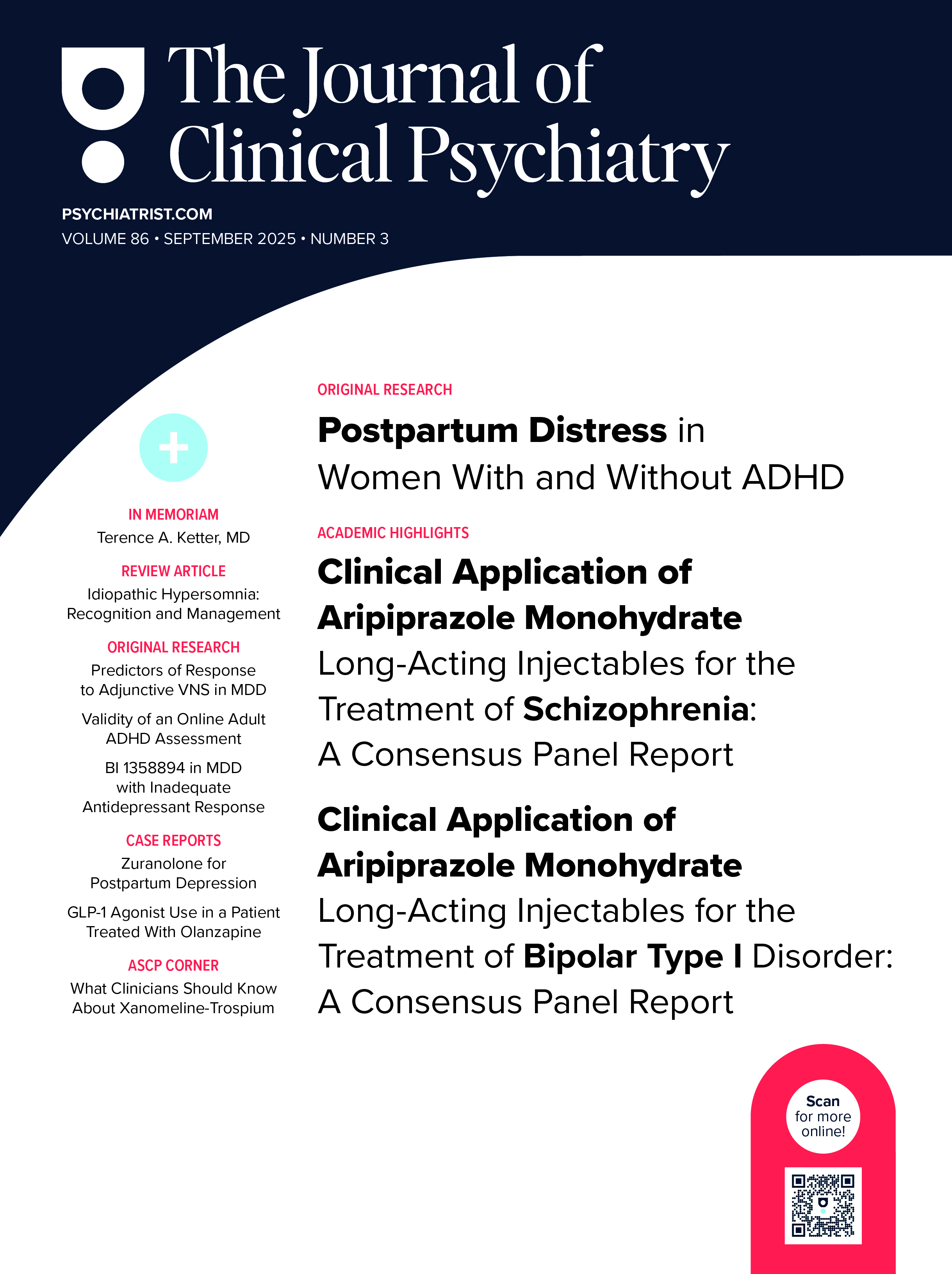Because this piece has no abstract, we have provided for your benefit the first 3 sentences of the full text.
The ASCP is particularly concernedabout enhancing the knowledge base and thesuccess of knowledge transfer in clinicalpsychopharmacology. Given the number ofclinical trials being published and theamount of trial data available to clinicians,we discuss some key elements of trial design,analysis, and reporting.The goal of clinical trials in psychopharmacologyis to characterize the efficacyand safety properties of the treatment beingstudied.’ ‹
Please sign in or purchase this PDF for $40.00.

